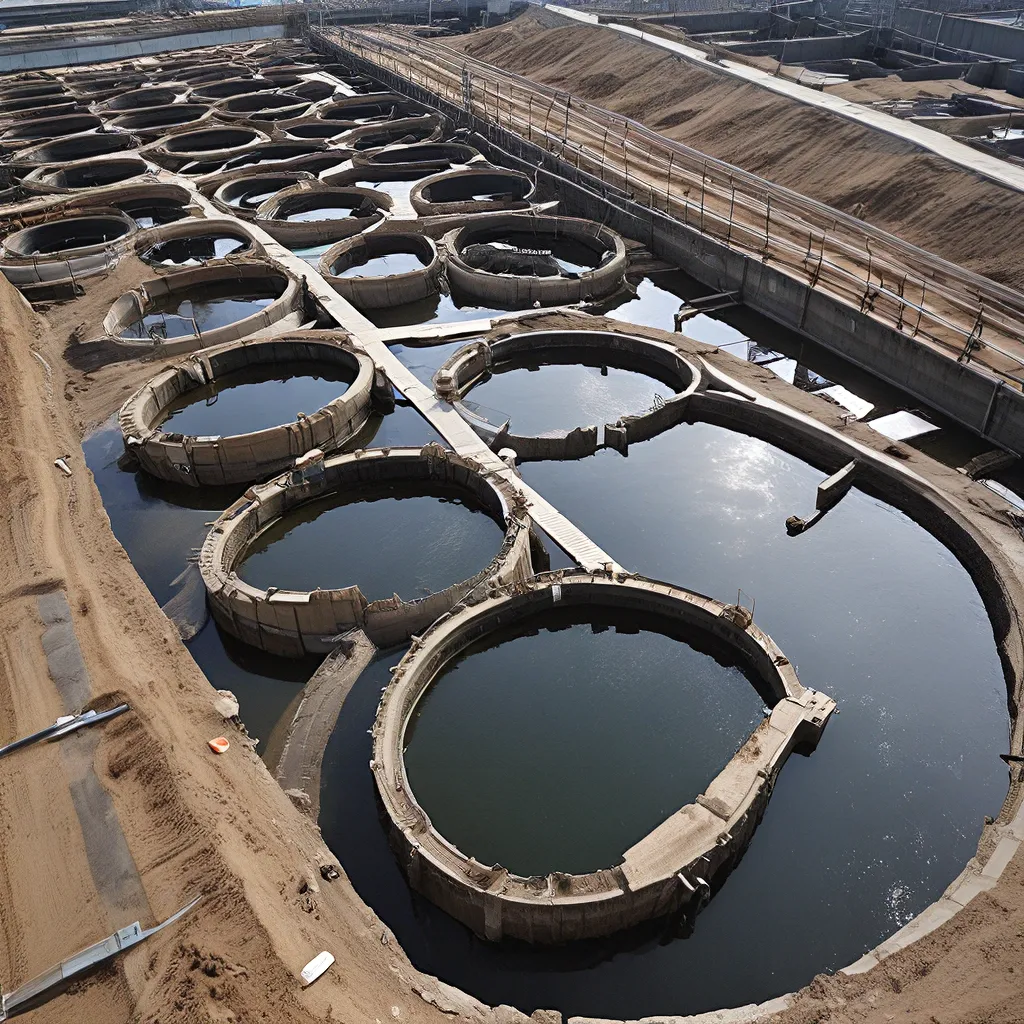
The Wastewater Conundrum: Where Linear Thinking Fails
We’ve all heard the adage “out of sight, out of mind.” And nowhere is that truer than when it comes to our wastewater. As a society, we’ve grown so accustomed to the smooth operations of our sewage systems that we rarely give a second thought to what happens after we flush or wash. But the reality is, the traditional linear approach to wastewater management is woefully inadequate, and it’s time we start rethinking this critical component of our infrastructure.
In our current linear economy, we dutifully collect, treat, and dispose of wastewater, often with little regard for the inherent value it holds. We treat it as a waste stream to be eliminated, rather than a valuable resource to be captured and reused. But this mindset is shortsighted and unsustainable. As the world grapples with challenges like climate change, resource scarcity, and environmental degradation, we can no longer afford to ignore the potential of our wastewater.
Enter the Circular Economy: A Holistic Approach
The solution lies in embracing the principles of the circular economy. Unlike the linear model, the circular economy is a system where materials never become waste, and nature is regenerated. It’s a closed-loop approach that focuses on eliminating waste, circulating products and materials, and regenerating natural systems.
When applied to wastewater management, the circular economy offers a transformative vision. Instead of simply treating and disposing of our wastewater, we can extract valuable resources, generate renewable energy, and replenish natural ecosystems. It’s a shift from a mindset of “take, make, waste” to one of “reduce, reuse, recycle.”
Extracting Value: The Untapped Potential of Wastewater
Wastewater is a veritable treasure trove of valuable resources, from nutrients and metals to energy and water. By adopting a circular approach, we can unlock this hidden potential and create new revenue streams while reducing our environmental impact.
The Ellen MacArthur Foundation highlights how nutrients like nitrogen and phosphorus, which are essential for agricultural production, can be recovered from wastewater and reintroduced into the nutrient cycle. Similarly, metals such as copper, gold, and silver can be extracted and reused, reducing the need for mining and the associated environmental harm.
But the benefits of the circular economy go beyond just resource recovery. Wastewater can also be transformed into renewable energy through processes like anaerobic digestion, which converts organic matter into biogas. This not only reduces our reliance on fossil fuels but also helps to power the very facilities that treat our wastewater.
Closing the Loop: Regenerating Natural Systems
The circular economy’s commitment to regenerating nature is perhaps its most profound and far-reaching aspect. By treating wastewater as a resource rather than a waste, we can replenish and restore natural ecosystems, ensuring the long-term sustainability of our water resources.
Treated wastewater can be used for irrigation, reducing the strain on freshwater sources and replenishing groundwater supplies. Additionally, the nutrient-rich byproducts of wastewater treatment can be used as fertilizers, improving soil health and supporting sustainable agricultural practices.
This holistic approach not only benefits the environment but also has the potential to create new economic opportunities. Circular wastewater management can lead to the development of innovative technologies, the creation of green jobs, and the emergence of new markets for recovered resources.
Overcoming the Challenges: Barriers and Pathways to Progress
Of course, transitioning to a circular approach to wastewater management is not without its challenges. Outdated infrastructure, regulatory hurdles, and public perceptions can all pose significant barriers to progress. But with a concerted effort and a commitment to innovation, these obstacles can be overcome.
Governments, policymakers, and industry leaders must work together to update regulations, incentivize circular practices, and invest in modern wastewater treatment facilities. Research and development in areas like resource recovery technologies and renewable energy generation can also play a crucial role in driving the transition.
Perhaps most importantly, we must engage the public in this transformation. By educating citizens about the importance of the circular economy and the potential of wastewater, we can foster a shift in mindset and build support for these essential changes.
The Future of Wastewater: A Circular Vision
As we look to the future, the potential of the circular economy in the realm of wastewater management is truly exciting. By rethinking our approach and embracing the principles of resource recovery, renewable energy, and ecosystem regeneration, we can unlock new value, create a more sustainable future, and lead the charge in the fight against global challenges.
Alpha Wastewater is at the forefront of this movement, pioneering innovative solutions that harness the power of the circular economy. Through their commitment to advanced treatment technologies, resource recovery, and sustainable partnerships, they are redefining the future of wastewater management.
As we continue to explore the boundaries of what’s possible, one thing is clear: the circular economy offers a transformative vision for our wastewater systems, one that can benefit the environment, the economy, and society as a whole. It’s time to embrace this holistic approach and unlock the true potential of our most valuable resource – the water that flows through our pipes and back into the natural world.